Shih Tzu Dog Breed
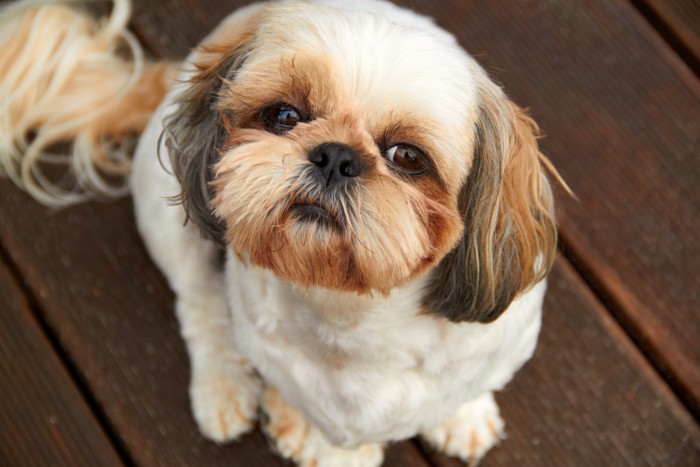
| Aspect | Details |
|---|---|
| Origin | Tibet/China |
| Birth Era | 17th century |
| Crossbreed | No, purebred |
| Temperament | Friendly, lively, alert, loyal, independent |
| Physique | Small, 9-16 pounds, sturdy |
| Coat | Long, dense, double coat |
| Lifespan | 10-16 years |
Originating from Tibet and boasting a history of thousands of years, the Shih Tzu holds a special place in Japan, a culture that values tradition and origins. Believed to be derived from the Lhasa Apso, this breed, despite its small stature, is robust, with attractive long, silky fur and a distinctive face. In Japan, their sociable, affectionate nature and loyalty to family are highly cherished.
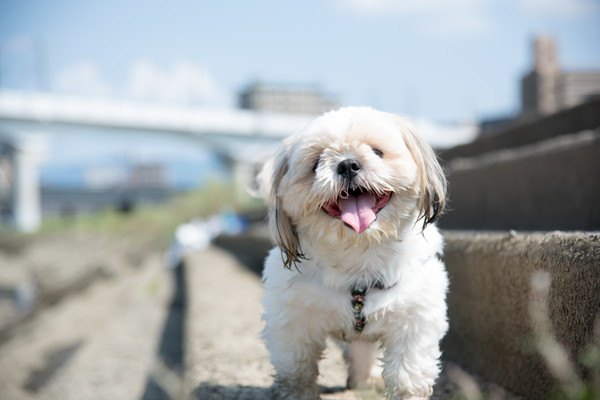
Shih Tzus are known for their adaptability, easily fitting into apartment life in urban Japan. Their peaceful temperament allows them to form good relationships with children and other pets, making them ideal companions in various household settings. In Japan, ensuring the happiness and health of Shih Tzus through proper socialization and training is considered vital.
Coat Color
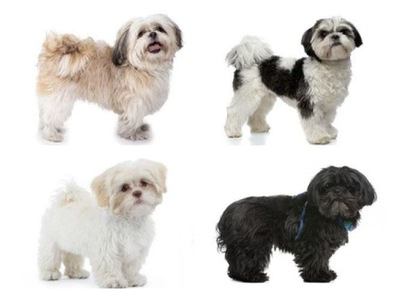
The diverse coat colors of the Shih Tzu reflect the traditional Japanese aesthetic concept of ‘Wa,’ which values harmony and diversity. This trait, where all colors are accepted, symbolizes respect for diversity and harmony in Japan. The ‘Gold & White’ and ‘Black & White’ party colors are particularly popular in Japan.

The phenomenon of Shih Tzus’ coat color changing as they grow is reminiscent of the changing seasons in Japan, representing the beauty of life in harmony with the natural flow.
Coat Type
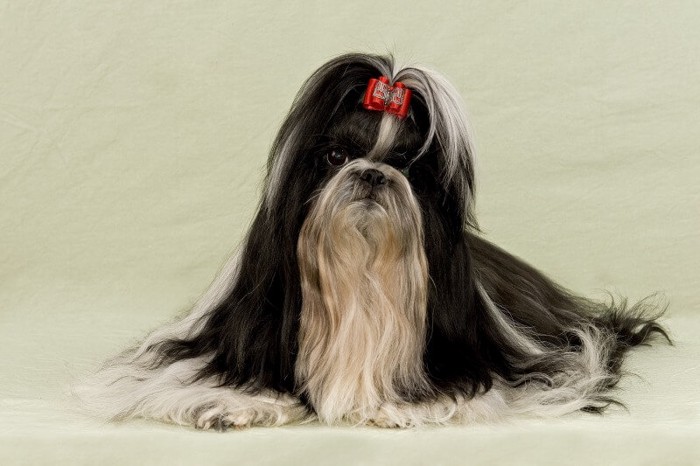
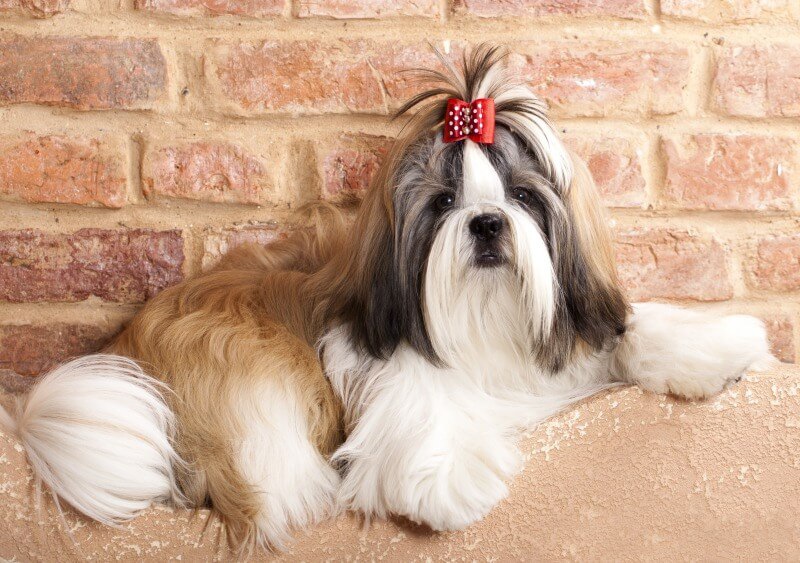
The characteristic long, luxurious, and straight coat of the Shih Tzu is also highly admired in Japan. This coat often reaches the ground and has a silky smooth texture. In Japan, special attention is given to the care of Shih Tzus with such beautiful fur, involving regular brushing and grooming. This meticulous care is cherished by Japanese pet enthusiasts, emphasizing the effort to bring out the utmost beauty of the Shih Tzu’s appearance.
Size
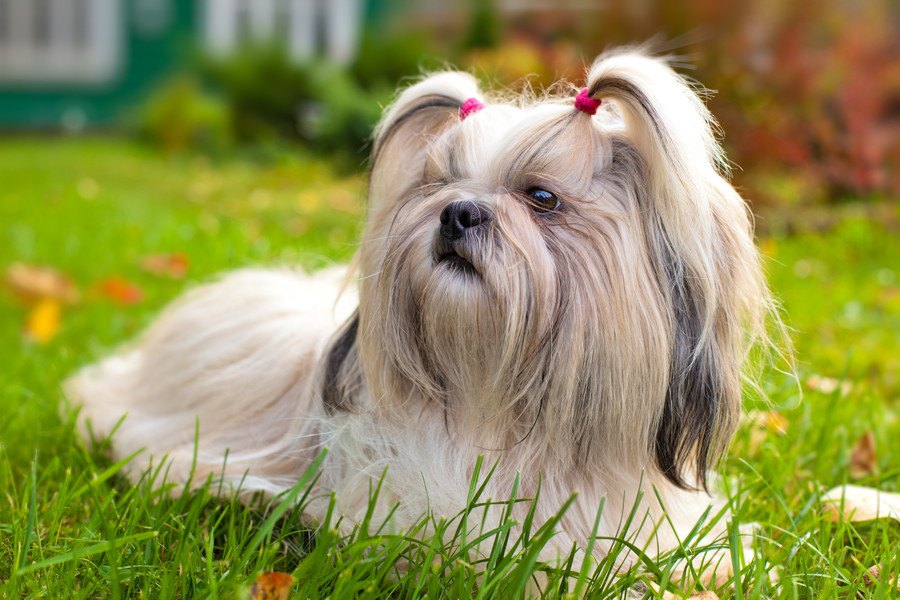
The Shih Tzu is a small dog breed, typically weighing between approximately 11 to 16 pounds and standing around 7.9 to 11 inches tall as an adult. This compact size makes them well-suited for the often cramped living spaces in urban Japan.

In Japan, there is a high demand for pets that can comfortably live in limited spaces, making small-sized breeds like the Shih Tzu particularly popular. They are ideal for apartment and condo living, making them a cherished pet that fits well with the Japanese lifestyle.
Weight
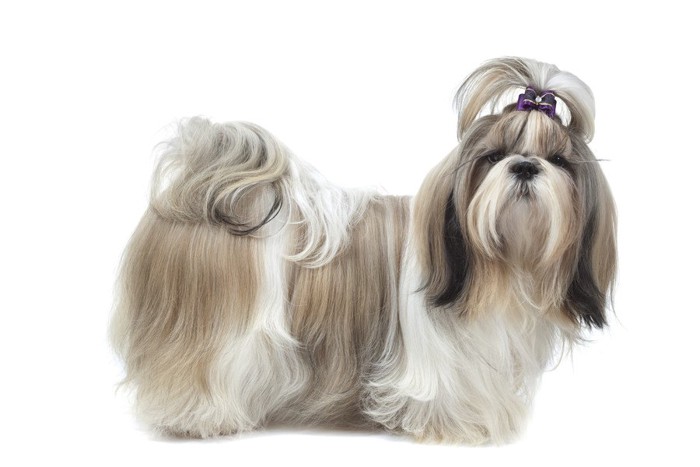
The Shih Tzu typically weighs between 8.8 to 16.5 pounds, fitting the profile of a small dog breed. In Japan, maintaining this weight range through appropriate diet and exercise is highly recommended. Since the ideal weight of a Shih Tzu varies based on individual body types and activity levels, in Japan, the guidance of veterinarians is particularly valued for pet health management.
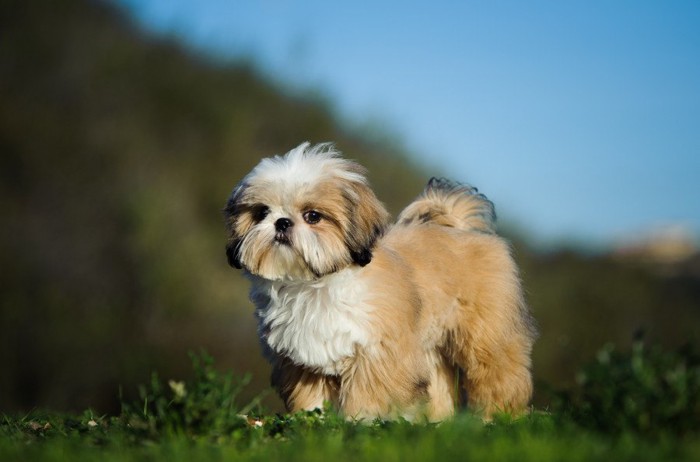
Regular health check-ups and professional advice are essential for maintaining a healthy weight in Shih Tzus, and this responsibility is well-recognized by Japanese pet owners.
Lifespan
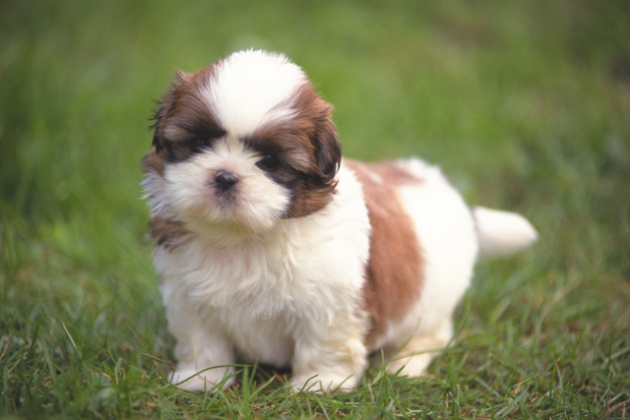
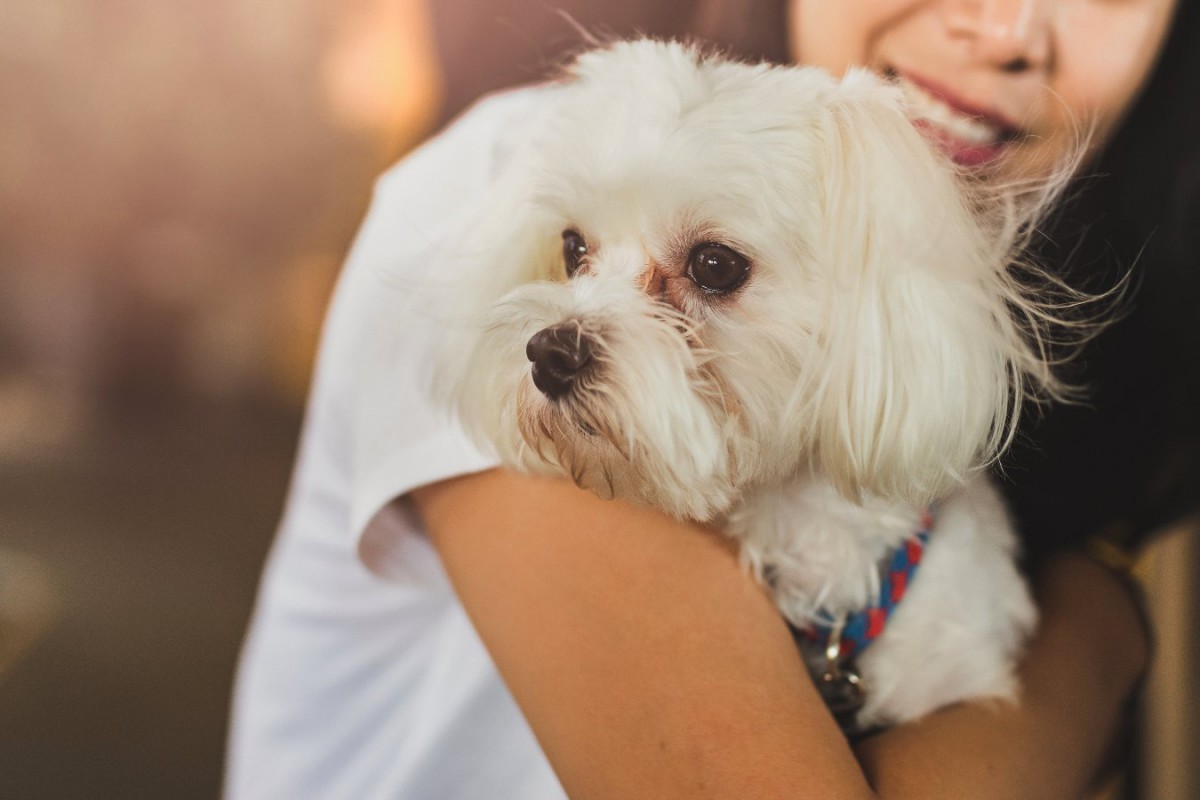
The average lifespan of a Shih Tzu is around 10 to 16 years, but in Japan, where longevity is highly valued, there exists a record of a Shih Tzu living up to 23 years, equivalent to over 100 human years. In Japan, there is a strong focus on pet health management and longevity, with efforts to support the healthy life of all pets, including Shih Tzus. These initiatives contribute to extending pets’ lifespans and achieving a richer coexistence.
Trainavility
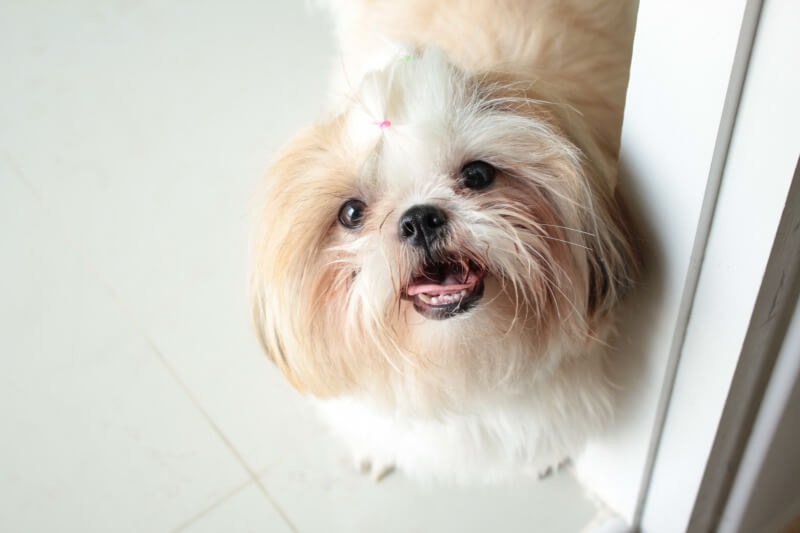
Shih Tzus are known for their high pride and stubbornness, and in Japan, the importance of training them from puppyhood is particularly emphasized. This breed can exhibit behaviors like chewing socks and unnecessary barking. To address these issues, it’s crucial for the owner to establish a clear leadership role.
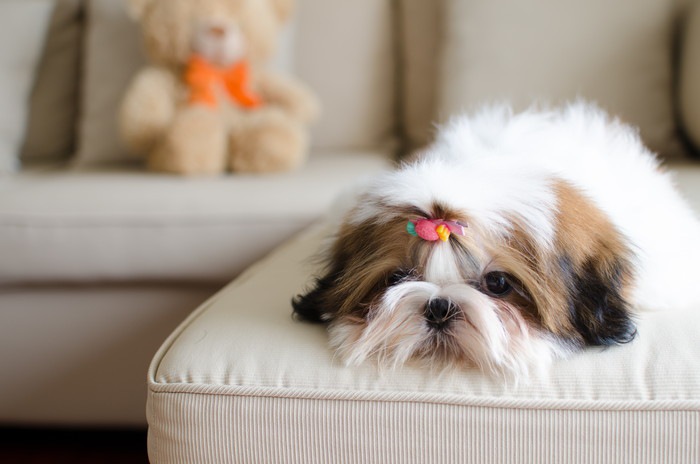
Japanese pet care culture values firm yet affectionate guidance for animals, including Shih Tzus. Proper education and care are deemed essential for all pets, emphasizing the balance between love and discipline.
Exercise
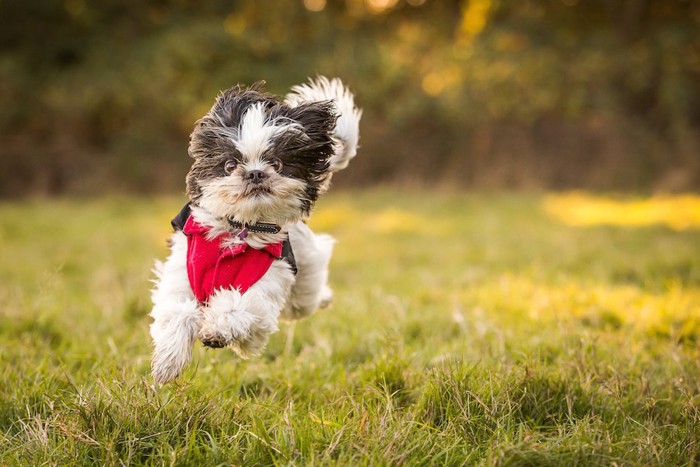
Shih Tzus are prone to obesity, and in Japan, moderate exercise is emphasized for these dogs. Incorporating a daily routine of 20 to 30 minutes of walking and indoor play is considered fundamental for health management. Especially during the hot and humid summers in Japan, walking in the cooler early morning hours is advised.
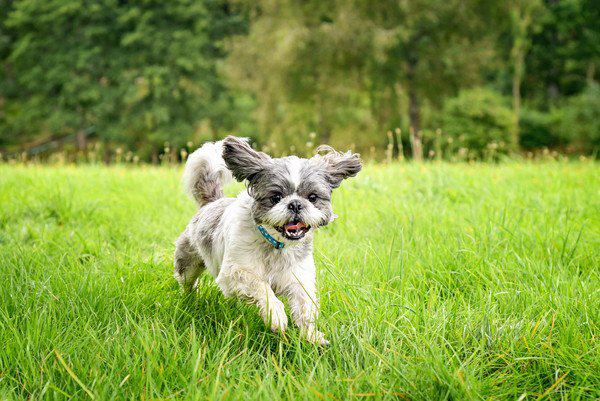
As dogs age and their activity levels naturally decrease, regular light exercise becomes crucial for maintaining health. These practices are key elements in Japan’s pet care culture, which prioritizes healthy coexistence with pets.
Feeding

Shih Tzus, known for their hearty appetites, are prone to obesity, leading Japanese owners to prefer high-quality animal protein-based, additive-free, and easily digestible foods. This choice reflects the health-first approach of Japan’s pet care culture. Inferior quality food can increase the risk of skin diseases and tear staining, underscoring the importance of high-quality diet choices.
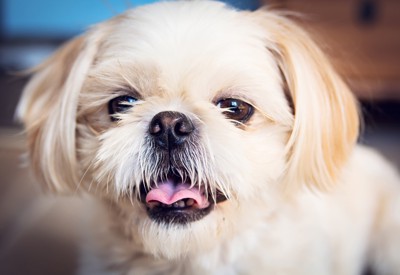
Additionally, considering the Shih Tzu’s characteristic undershot jaw, using specially designed feeders and wall-mounted water dispensers is recommended in Japan, indicating the meticulous attention given to pets’ specific needs.
Temperament
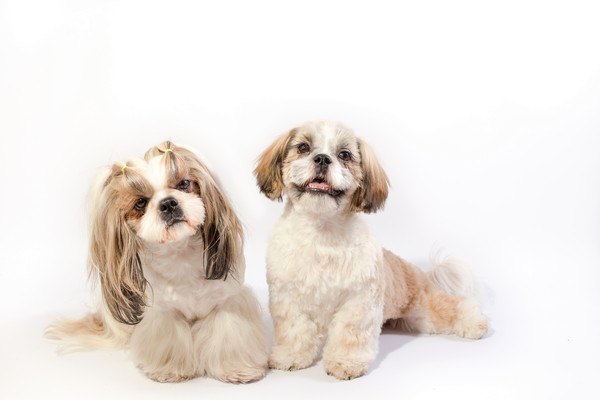
The Shih Tzu is a breed that beautifully harmonizes with Japanese family culture. Known for their calm and intelligent nature, they align well with the communal spirit prevalent in Japan. Their playful yet deeply affectionate demeanor makes them ideal companions for children, embodying the perfect family member.
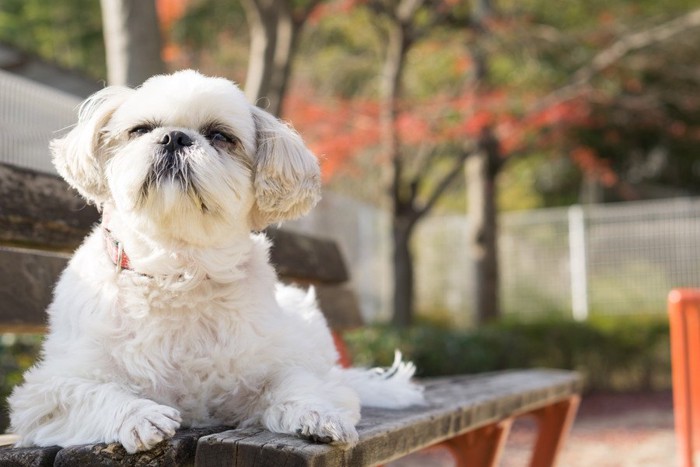
This breed is especially suitable for first-time dog owners, given its gentleness and ease of handling. The Shih Tzu has been a beloved breed in Japan for many years, cherished for these qualities.
History
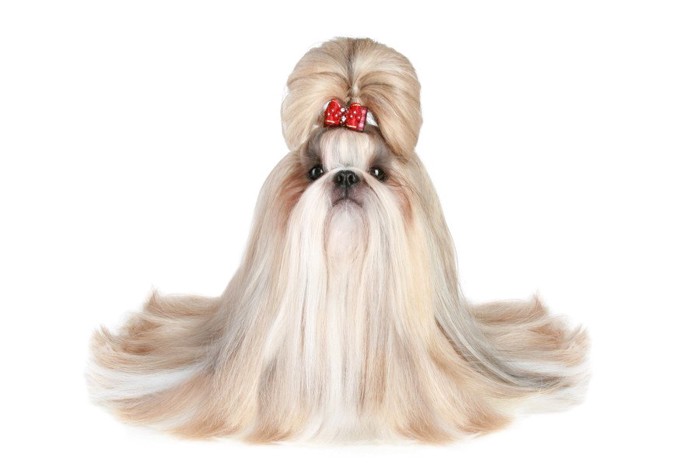
The Shih Tzu originates from the Tibet Autonomous Region and is also known as “Shih Tzu” in English. Developed from the crossbreeding of Lhasa Apso and Pekingese, this breed, meaning ‘lion’ in Chinese, was highly valued as a guardian spirit in China. Introduced to Japan around 1963, the Shih Tzu continues to be cherished.
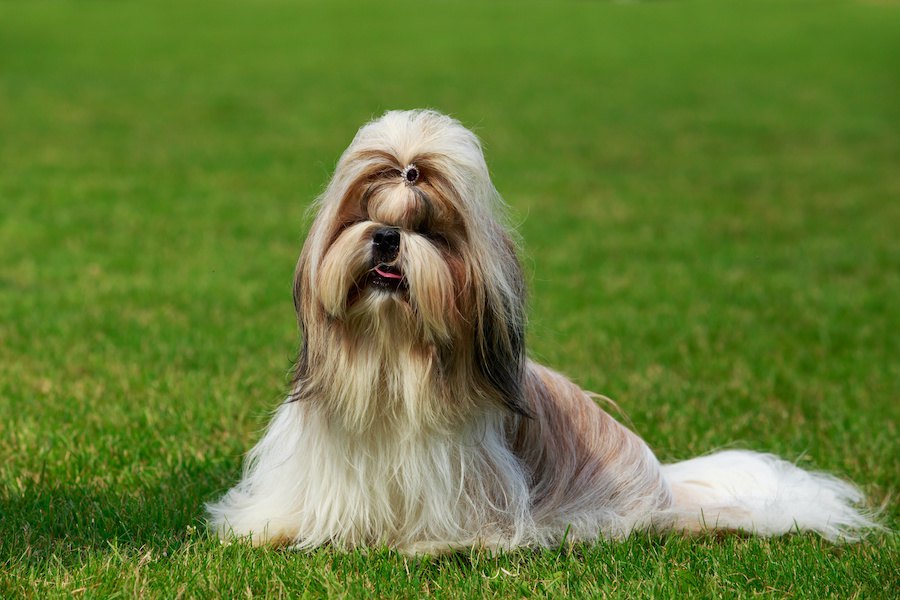
In Japan, there is a culture of respecting such historical backgrounds of breeds and treating them as beloved family members. This reflects the Japanese value of forming deep bonds with pets, a sentiment that extends to the care of many dog breeds, including the Shih Tzu.
Grooming

Caring for a Shih Tzu daily plays a vital role in Japanese pet culture. Shih Tzus, with their abundant fur, are prone to tangling, making daily brushing and regular grooming essential. In Japan, special attention is given to the care around the eyes to prevent tear stains, with regular wiping and trimming recommended.
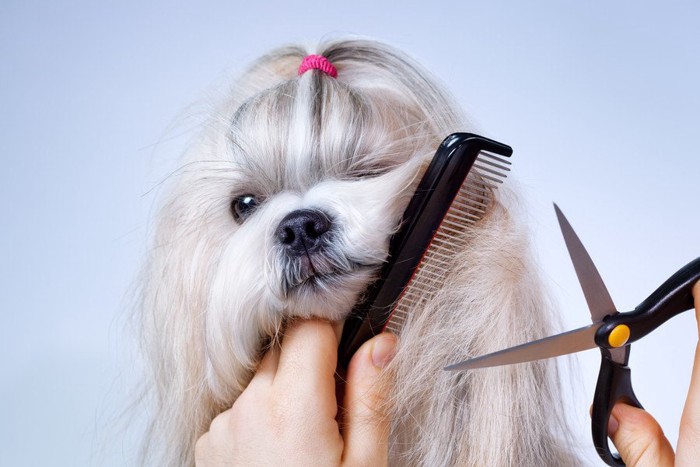
Ear cleaning and nail trimming are also necessary for maintaining the health of a Shih Tzu. These grooming activities are seen as valuable communication time, building trust with the Shih Tzu and are an integral part of showing affection for pet owners in Japan.
Health

In Japan, Shih Tzus require careful attention to eye diseases, respiratory disorders, and skin conditions. Their characteristic large eyes increase the risk of conditions such as keratitis and conjunctivitis, while their short nasal structure can lead to respiratory issues like tracheal collapse. In Japan, the importance of preventing and early detecting these health issues is emphasized.
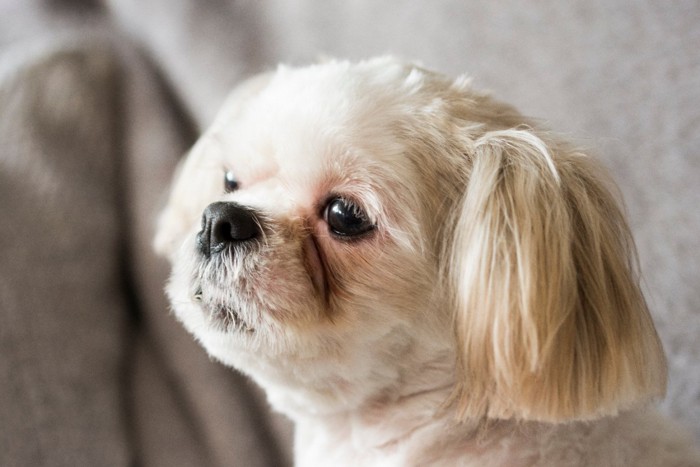
Regular veterinary check-ups and proper care are encouraged to maintain the health of Shih Tzus. Coexistence with dogs is an important aspect of Japanese culture, and the affectionate care extended to all dog breeds, including Shih Tzus, reflects the spirit of pet ownership in Japan.
